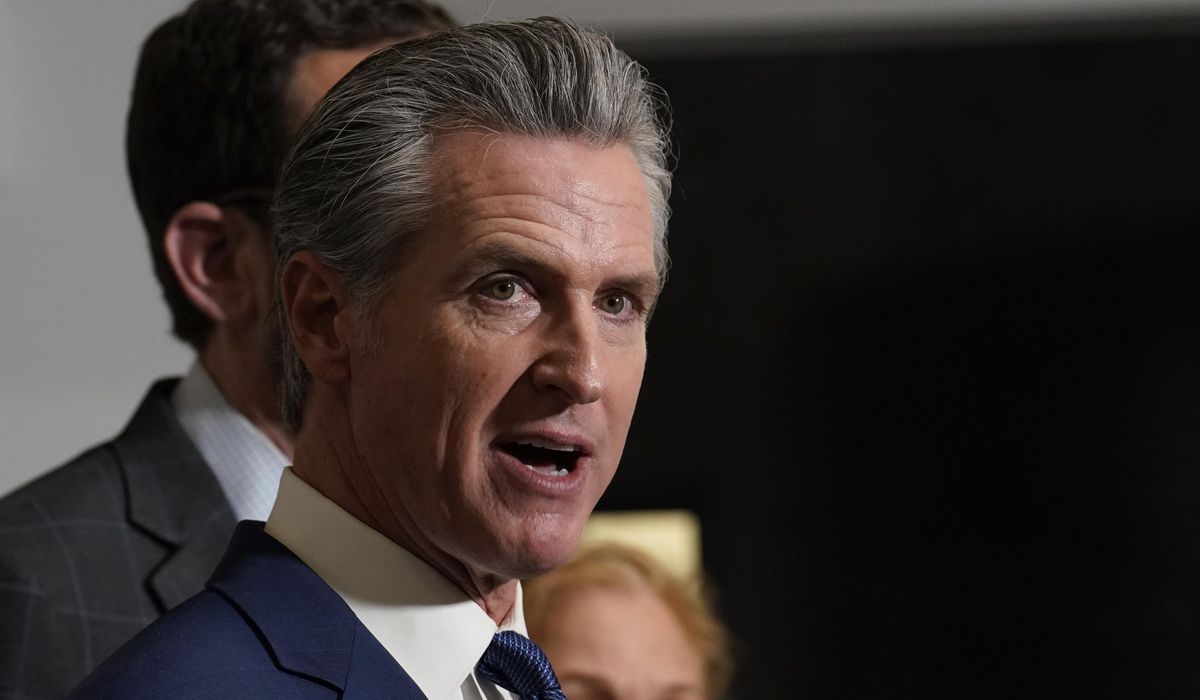


A federal judge tossed a California law intended to prevent fake political ads from influencing elections, finding that the measure violated the First Amendment in response to a legal challenge filed by internet personalities and the Babylon Bee.
Senior U.S. District Judge John Mendez issued an order barring the state from enforcing Assembly Bill 2839, which bans AI-generated “disinformation and deepfakes” in political communications 120 days before an election.
“To be sure, deepfakes and artificially manipulated media arguably pose significant risks to electoral integrity, but the challenges launched by digital content on a global scale cannot be quashed through censorship or legislative fiat,” Judge Mendez said in his Friday decision.
“Just as the government may not dictate the canon of comedy, California cannot preemptively sterilize political content,” the judge said.
Judge Mendez also entered a judgment on Friday against Assembly Bill 2655, which requires online platforms to remove such content.
He previously ruled that the law violated Section 230 of the federal Communications Decency Act, which grants immunity to online platforms from liability over third-party content. The law was challenged by platforms X and Rumble.
California Gov. Gavin Newsom signed the two measures in September 2024, saying that “it’s critical that we ensure AI is not deployed to undermine the public’s trust through disinformation — especially in today’s fraught political climate.”
Bringing the legal challenge against AB 2839 were the Babylon Bee, a conservative Christian satire site; blogger Kelly Chang Rickert; and political commentator Christopher Kohls, also known as “Mr Reagan.”
“Our job is hard enough when our jokes keep coming true, as if they were prophecies,” said Bee CEO Seth Dillon in a statement. “But it becomes significantly more difficult when self-serving politicians abuse their power to try to control public discourse and clamp down on comedy. We’re pleased the court recognized the First Amendment secures our right to tell jokes, even ones the government doesn’t like.”
California Democrats passed the measures last year over purported concerns about scammers using artificial intelligence to sway elections with “materially deceptive” audio and visual media.
“In a few clicks, using current technology, bad actors now have the power to create a false image of a candidate accepting a bribe, a fake video of an elections official ‘caught on tape’ saying that voting machines are not secure, or generate an artificial robocall in the Governor’s voice incorrectly telling millions of Californians their voting site has changed,” said the AB 2839 “Fact Sheet.”
The issue gained attention last year after Mr. Kohls created a satirical campaign video using AI in which he duplicated the voice of Democrat presidential candidate Kamala Harris making statements such as, “I may not know the first thing about running the country, but that’s a good thing if you’re a deepstate puppet.”
The video went viral after being reposted by X owner Elon Musk, drawing more than 100 million views.
Mr. Newsom responded by raising concerns about election integrity, saying on X: “Manipulating a voice in an ‘ad’ like this should be illegal. I’ll be signing a bill in a matter of weeks to make sure it is.”
Judge Mendez said the measure went too far, finding that the “the most glaring issue with AB 2839 is that the statute is not narrowly tailored because it captures even constitutional deepfakes and all ‘materially deceptive content.’”
Johannes Widmalm-Delphonse, Alliance Defending Freedom senior counsel, said the government shouldn’t be entrusted with deciding “what is true in our online political debates.”
“Making fun of politicians and criticizing the government is a core First Amendment right. That includes using new technology to create parody campaign ads or satirical memes,” he said in a statement. “The court was right to rein in California’s blatant censorship.”
• Valerie Richardson can be reached at vrichardson@washingtontimes.com.
